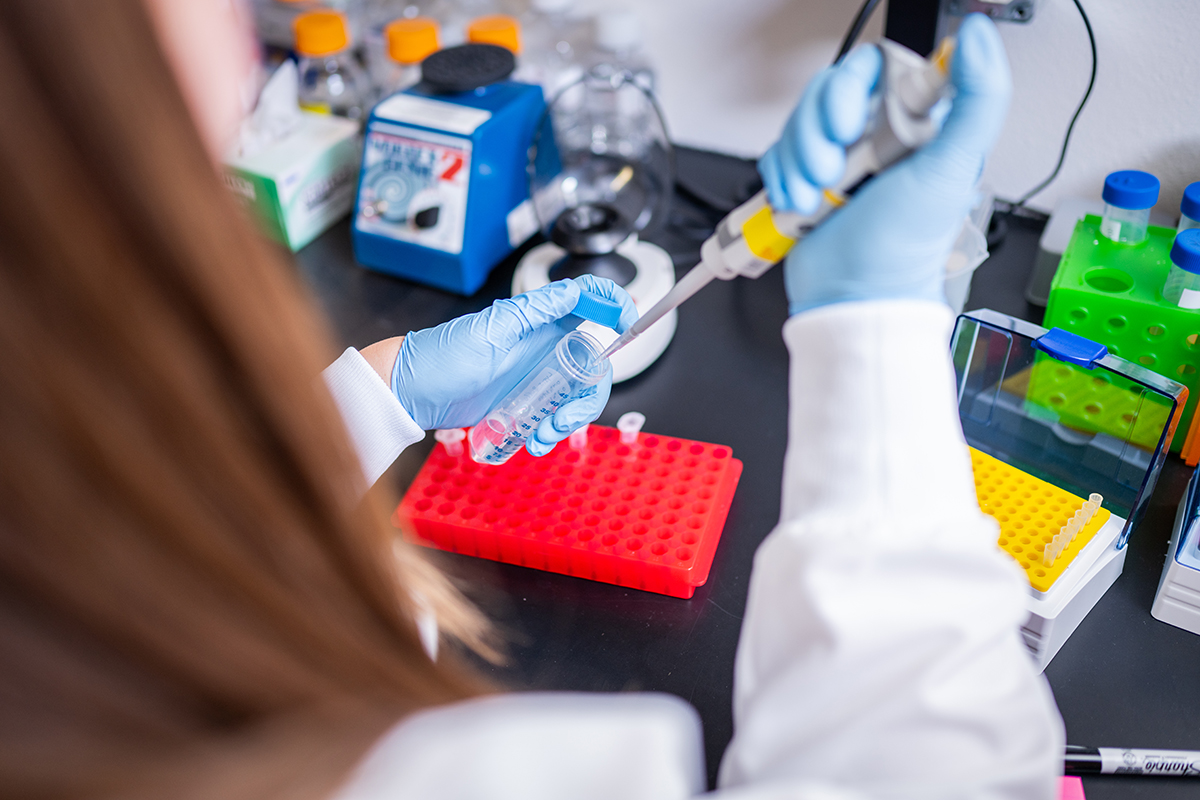
UW–Madison is one of the world’s leading research universities, and federal funding is vital to its work. Taylor Wolfram
One of the most pressing issues on campus in 2025 has been the threat to federally funded research. UW–Madison’s research expenditures top $1.7 billion a year, and about half of that comes from federal grants. When the government announced changes that would limit those funds, the UW felt, in Chancellor Jennifer L. Mnookin’s understated phrase, “deep concern.” Although a relatively small number of grants have been cut so far, all of them face uncertainty, and delayed decisions on future grants only add to the uncertainty. The effects could extend well beyond the lab.
The On Wisconsin team chose this issue’s cover subject with several purposes in mind. One is obvious: we think that Immuto Scientific has an interesting story. Another is about timing: this year marks the centennial for the Wisconsin Alumni Research Foundation, the organization that manages UW–Madison’s intellectual property. WARF helps get discoveries out of the lab and into the hands of people who can use them. It’s been part of some of the UW’s biggest research successes: vitamin D enrichment, warfarin, the UW Solution for organ transplants, and more. Those discoveries and inventions have helped millions of people, and they’ve proven lucrative, providing funding for more UW research.
But Immuto’s story also illustrates one aspect of the importance of UW–Madison’s research enterprise. Immuto has a product that could revolutionize drug development, and it aims to create its own drugs — including a treatment for a deadly blood cancer. But the company didn’t just form out of good ideas and a savvy business plan. It was helped along by federally funded research.
Immuto’s leaders are Faraz Choudhury PhD’17 and Daniel Benjamin ’16, MS’17, PhD’21, and its technology grew out of work they did with Michael Sussman. Sussman’s lab receives funding from the Department of Energy and the National Science Foundation. Immuto itself received a National Institutes of Health SEED program grant. Federal research funding helped Badger scientists conduct the studies that underlie Immuto, long before anyone knew that those studies might lead to patentable discoveries or that those discoveries might prove profitable. Private companies are unlikely to provide funding for early discovery work — it seldom leads to a financial return. Federal funding helps scientists do the work of discovery that businesses will build on later.
UW–Madison is one of the world’s leading research universities, and federal funding is vital to its work. That funding is under threat, and it’s crucial to realize what’s at stake. You’ll be seeing more about the UW’s research work in coming issues. If you’d like more frequent updates, visit news.wisc.edu/research-impact, and if you want to see five ways you can help protect UW research, see uwalumni.com/news/how-to-fight-for-the-uws-future.
Published in the Fall 2025 issue



Comments
Dora K. HAYES Msi parasitology '1953 September 27, 2025
Where are the 5 ways to fight for the uws future??? This was promised in the On Wisconsin Aliumni Magazine. Did I overlook a continuation based on your editori??
Niki Denison September 30, 2025
You can find the five suggested ways to fight for the UW’s future at this url: https://uwalumni.com/news/how-to-fight-for-the-uws-future/
Thanks for your support!